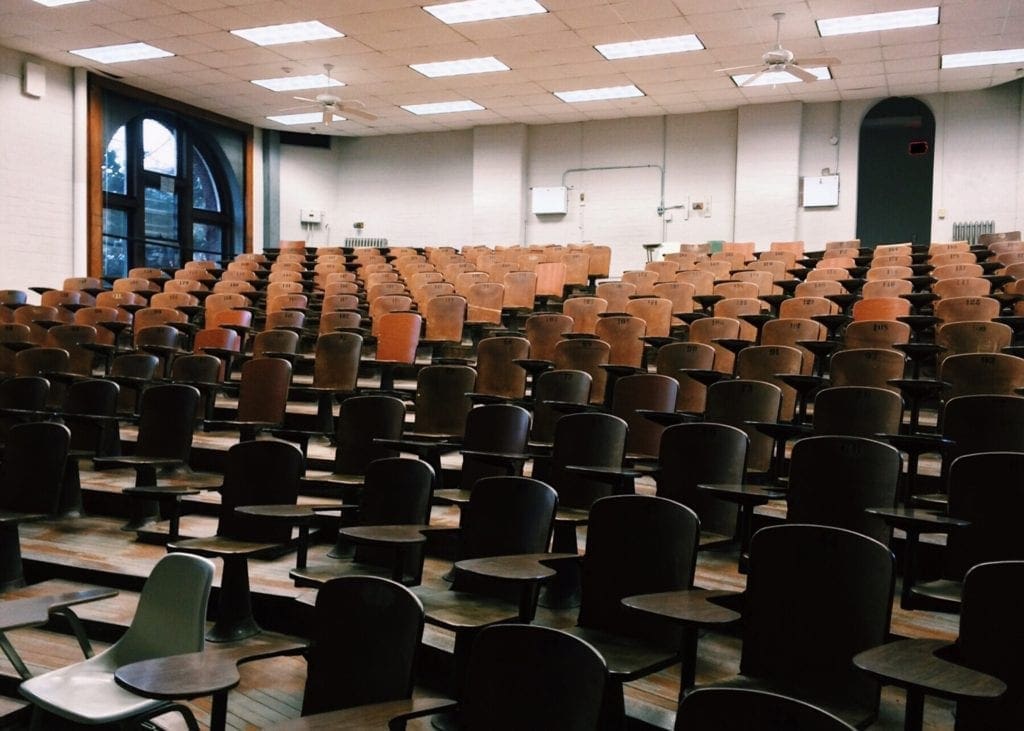Dirty Jobs’ Mike Rowe does not pull punches when it comes to tearing down conventional wisdom in professional advancement.

Rowe has had choice words for the university system and how it has kept Americans ill-prepared for the real world. One of the greatest insights that Rowe has shared with many Americans disillusioned with their professional prospects is to look the other way in the blue-collar sector for lucrative opportunities.
On Tucker Carlson’s nightly show, Mike Rowe continued his attacks on higher education in America. Rowe claimed that Americans and legacy institutions are “obsessed with credentialing, not education.”
Rowe continued, “I think because stuck in this binary box, this or that. Right, blue-collar or white color, good job or a bad job. Higher education or higher alternative education.”
The TV show host then said:
“The cost of college today has almost nothing to do with the cost of an education, and everything to do with the cost of buying a credential. That’s all a diploma is. Some are more expensive than others, but none of them reflect the character of the recipient, none are necessary to live a happy and prosperous life, and none of them come with any guarantees.”
Rowe gets the surface details correct, however, there is more to the story than meets the eye. Ever since the federal government got involved in education, not only has the quality become suspect, but the cost of education has skyrocketed.
A study from the National Bureau of Education Research (NBER) found that the average net tuition increased by 106 percent from 1987 to 2010. We can thank government subsidized loans for that.
These guaranteed subsidies artificially drive up demand, and in turn, universities take advantage of this by raising tuition rates. On top of that, rigorous accreditation standards shield established universities from competition. Gary North explains how the American university has evolved during the past century:
“Accreditation was initially private. Private regional accrediting associations were set up. Today, there are state laws governing the use of the word “university.” A university must be accredited.”
In effect, these legal barriers to entry restrict the supply of academic institutions providing educational services, thus keeping prices high.
With how democratized information has become due to technology like the Internet, it no longer matters what educational institution you go to. Now, people from all over the world can learn information that was only available to rich elites. In theory, the playing field should already be leveled. Unfortunately, the government has not caught up with this trend and impedes the market from doing its thing.
The U.S. political economy, from its tax code to an out of control bureaucracy, has in many ways created a quasi-rigged environment against new entrants. Further, the education system helps perpetuate this vicious cycle of control. From the primary level up until the university level, students are treated as if they are cogs in a machine. Go to class, get lectured, memorize material. Rinse, lather, and repeat.
Once students enter the real world, they are up to their necks in debt and ill-prepared to be a part of the workforce. It’s even sadder when young individuals, disillusioned with their dreary corporate jobs, end up gravitating toward government solutions to these problems. The same government that constricts our job prospects, has also constricted our mindsets when it comes to working. Indeed, we can aspire for more.
It’s time to recognize that not everyone needs a traditional degree to have a successful career. Some people’s calling belongs in trades, not an office cubicle. Our society’s blind acceptance of the university to the corporate pipeline has stunted the professional imagination of countless individuals.
Rowe’s insights on higher education are a breath of fresh air. The next step is for Rowe and others to embrace free markets as the solution to the higher education conundrum.
Rowe might not have the correct specifics but he’s at least starting a conversation that must take place if we want to overhaul our education system. We can start by treating education like a good or service, not some positive right that has to be provided or stimulated by the most primitive institution to rule them all—the State.




















